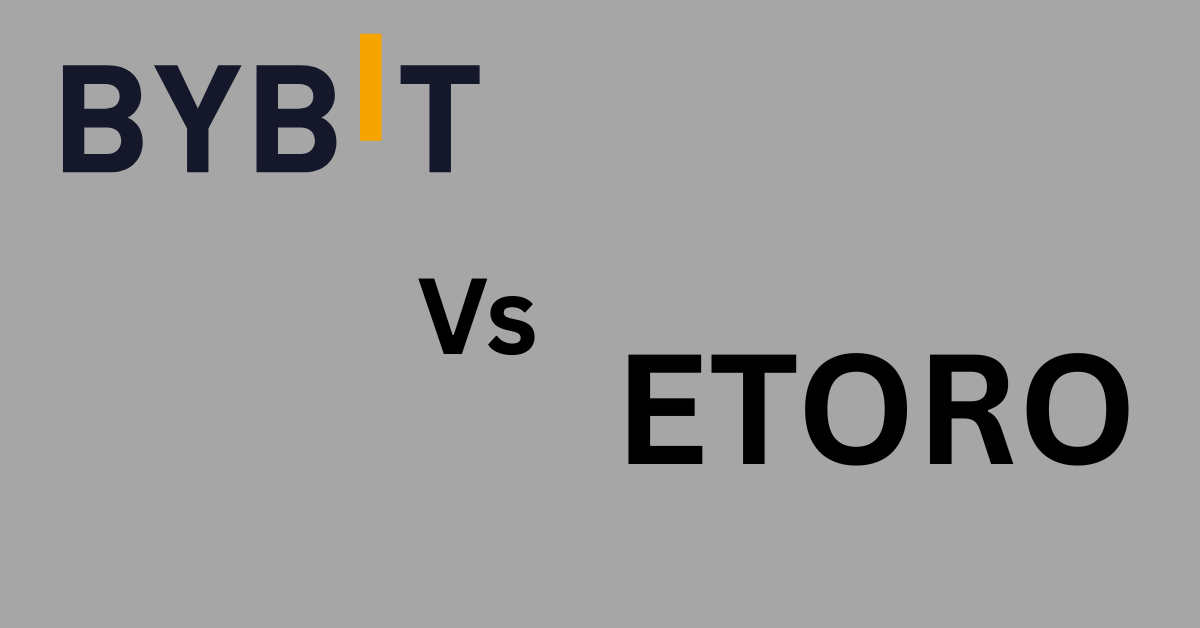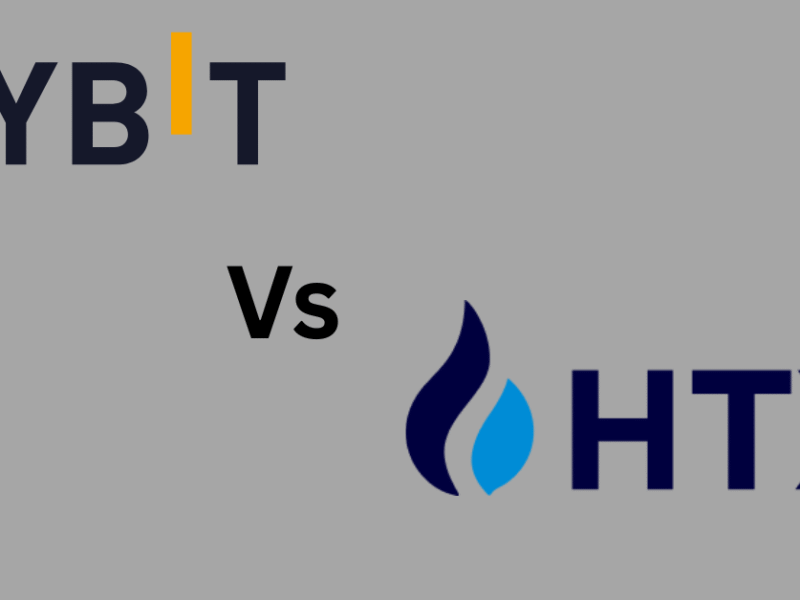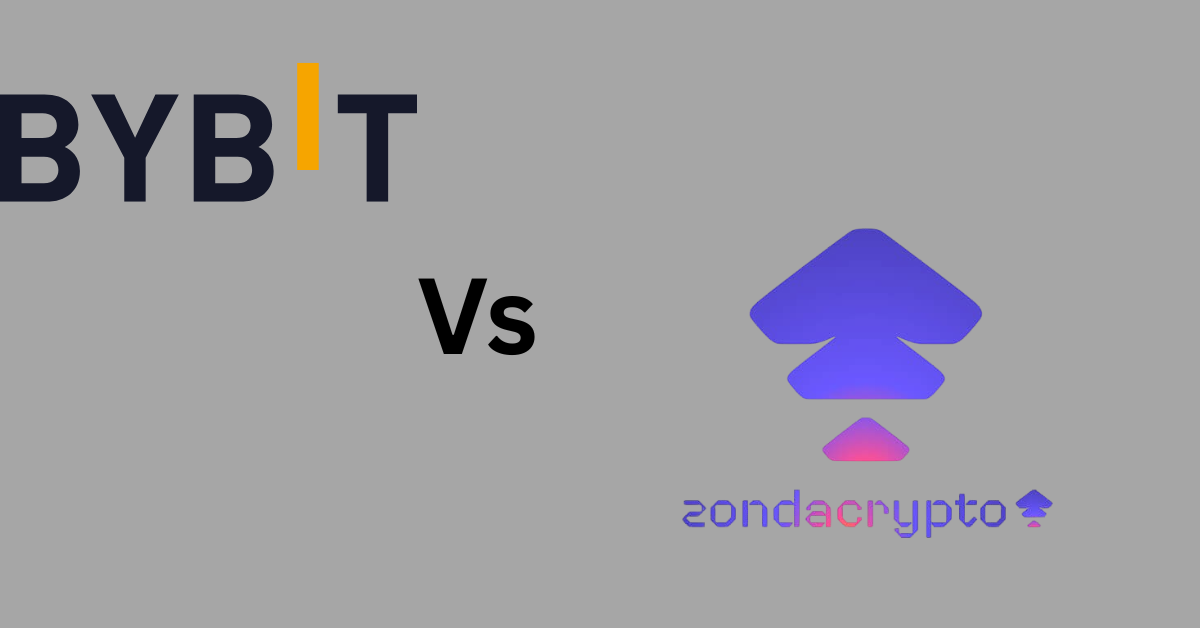Choosing the right cryptocurrency exchange is crucial for both new and experienced traders. Two popular platforms in the market are Bybit and eToro. Each offers unique features, trading options, and fee structures. This article breaks down their key differences, advantages, and disadvantages to help you decide which suits your needs best.
Key Takeaway:
- Bybit excels in derivatives trading with low fees and advanced tools.
- eToro offers a beginner-friendly, multi-asset platform with social trading.
- Bybit supports a wider range of cryptocurrencies than eToro.
- eToro provides no-commission crypto trading but with spread-based fees.
- Bybit allows trading without mandatory KYC for small accounts.
- eToro has strong regulatory oversight and investor protection schemes.
- Bybit is better suited for experienced traders; eToro fits casual investors.
- Both platforms prioritize security and offer global support.
- Your choice depends on whether you want advanced crypto trading or a simple, diversified investment experience.
Bybit vs eToro: Comparison Table
| Feature | Bybit | eToro |
|---|---|---|
| Platform Type | Crypto derivatives exchange | Multi-asset trading platform |
| Supported Assets | 400+ cryptocurrencies | Major cryptocurrencies, stocks, ETFs, forex, commodities |
| Trading Options | Futures, perpetual contracts, spot | Spot crypto, stocks, ETFs, forex |
| Fees | Low maker/taker fees, tiered discounts | No commission, spread-based fees |
| User Experience | Advanced tools, professional focus | Beginner-friendly, social trading |
| KYC Requirement | No mandatory KYC for small accounts | Full KYC required |
| Security | Cold wallets, 2FA, passkey support | Investor protection schemes |
| Customer Support | Live chat, help center | Ticket system, help center |
| Regulatory Compliance | Varies by region | Strong global regulatory oversight |
| Best For | Experienced and derivatives traders | Beginners and casual investors |
Overview of Bybit
Bybit is a cryptocurrency exchange that focuses mainly on derivatives trading, including futures and perpetual contracts. Launched in 2018, it quickly became popular for its fast order execution, advanced trading tools, and a smooth user interface. Bybit supports over 400 cryptocurrencies and provides spot trading alongside its derivatives offerings.
The platform is known for catering to professional traders but also offers educational resources for beginners. It allows trading without mandatory KYC for smaller accounts, making it accessible for users who prefer privacy. Bybit has a global presence and serves many countries with a streamlined registration process.
Security is a top priority at Bybit. The exchange uses cold wallets to store most of its funds offline and regularly publishes proof-of-reserves to maintain transparency. Users can also enhance their account protection with multiple security features such as two-factor authentication and passkey verification. For more on Bybit’s security measures, check Bybit’s Commitment to User Protection and Compliance and learn How to Enhance Your Account Security.
Bybit charges competitive fees, with maker fees as low as 0.01% and taker fees around 0.06%. Traders can benefit from tiered fee discounts based on their trading volume. To understand the full fee structure, visit Trading Fees – Bybit or read the Comprehensive Fee Guide.
For users interested in global accessibility, Bybit supports numerous countries for its one-click buy feature. You can check the full list here: Supported Countries/Regions for One-Click Buy.
Bybit offers dedicated customer support through a detailed help center and live chat service. If you want to reach support quickly, watch this guide: How to Access Bybit Live Chat Support Quickly.
Pros and Cons of Bybit
Pros:
- Wide range of cryptocurrencies (over 400 tokens).
- Strong focus on derivatives trading with deep liquidity.
- Low trading fees with volume-based discounts.
- No mandatory KYC for small accounts, allowing fast onboarding.
- Advanced security features, including cold wallets and passkey setup.
- User-friendly interface with powerful trading tools.
- Active customer support including live chat.
Cons:
- Derivatives trading focus may not suit casual spot traders.
- Limited educational resources compared to some competitors.
- Some countries are restricted from using the platform.
- Beginners might find advanced features overwhelming initially.
Overview of eToro
eToro is a multi-asset platform that offers cryptocurrency trading alongside stocks, ETFs, forex, and commodities. Founded in 2007, eToro has grown to become one of the largest social trading platforms globally. It appeals to users who want a simple, all-in-one investment experience rather than just a crypto exchange.
One of eToro’s standout features is its social trading community, where users can follow and copy trades from successful investors. This makes it especially attractive to beginners or those who prefer a more hands-off trading style.
eToro supports a smaller selection of cryptocurrencies compared to Bybit, focusing on major coins like Bitcoin, Ethereum, and several popular altcoins. However, the platform’s strength lies in its easy-to-use interface and strong regulatory compliance.
Security is a key component at eToro, which offers investor protection schemes and strong regulatory oversight. You can read more about their safety policies here: Investor Protection at eToro.
Regarding fees, eToro operates with a spread-based model and charges no commissions on crypto trades. For a detailed overview of eToro fees, visit eToro Fees Overview.
eToro supports users from many countries, but its availability depends on local regulations. You can verify if your country is supported here: Is eToro Supported in My Country?.
Customer support includes a comprehensive knowledge base and a ticketing system. More details are available on their customer service page: eToro Customer Service.
Pros and Cons of eToro
Pros:
- Multi-asset platform with crypto, stocks, and more.
- Social and copy trading features ideal for beginners.
- No commission fees on cryptocurrency trades.
- Easy-to-use, clean interface.
- Strong regulatory compliance and investor protection.
- Wide global reach with multiple supported countries.
Cons:
- Limited selection of cryptocurrencies compared to Bybit.
- Spread-based fees can be higher during volatile markets.
- No derivatives or futures trading options.
- Customer support lacks live chat and can be slower.
- Advanced traders may find limited trading tools.
FAQs
What is Bybit?
Bybit is a cryptocurrency exchange focused mainly on derivatives trading. It offers futures contracts and perpetual contracts on various cryptocurrencies. Bybit provides advanced trading tools aimed at experienced traders who want to engage in margin and leveraged trading.
What is eToro?
eToro is a multi-asset trading platform that supports cryptocurrencies, stocks, ETFs, forex, and commodities. It is known for its social trading features, allowing users to follow and copy other traders. eToro is beginner-friendly and focuses on a wide range of investment options.
How do the fees of Bybit and eToro compare?
Bybit charges low maker and taker fees, with tiered discounts for higher volume traders. eToro does not charge commissions on crypto trading but makes money from spreads. Overall, Bybit is generally cheaper for active traders, while eToro’s fees can be higher due to spreads.
Which platform is better for beginners?
eToro is better suited for beginners because of its easy-to-use interface, educational resources, and social trading features. Bybit’s platform is more complex and tailored to professional traders experienced in derivatives trading.
Does Bybit require KYC (Know Your Customer) verification?
Bybit allows users to trade spot markets without mandatory KYC up to certain limits. However, KYC is required for higher withdrawal limits and to access all platform features. eToro requires full KYC verification for all users due to regulatory compliance.
How secure are Bybit and eToro?
Both platforms prioritize security. Bybit uses cold wallets, two-factor authentication, and passkey verification to protect user funds and accounts. eToro operates under strong regulatory oversight with investor protection programs to safeguard customer assets.
Can I trade stocks on Bybit or eToro?
Only eToro supports stock trading along with ETFs and other traditional assets. Bybit focuses exclusively on cryptocurrency trading and derivatives.
What cryptocurrencies can I trade on Bybit and eToro?
Bybit supports over 400 cryptocurrencies including major coins and many altcoins, especially for derivatives trading. eToro offers a more limited selection of major cryptocurrencies for spot trading.
How does social trading work on eToro?
eToro allows users to follow experienced traders, view their trading portfolios, and automatically copy their trades. This feature helps beginners learn and invest without needing deep trading knowledge.
What customer support options do Bybit and eToro offer?
Bybit provides live chat support and an extensive help center. eToro offers customer support via ticketing systems and online resources. Both aim to assist users promptly but Bybit’s live chat offers real-time assistance.
Which platform has better regulatory compliance?
eToro operates under strict regulations in multiple countries including the US, UK, and Europe. Bybit’s regulatory status varies by region, and it is expanding compliance measures but is less regulated in some areas compared to eToro.
Can I trade with leverage on both platforms?
Bybit specializes in leveraged trading with futures and perpetual contracts offering high leverage options. eToro offers leverage on some assets but generally at much lower levels compared to Bybit.
Are there mobile apps for Bybit and eToro?
Yes, both Bybit and eToro offer fully functional mobile apps for iOS and Android. These apps support trading, portfolio tracking, and account management on the go.
How do deposit and withdrawal processes compare?
Both Bybit and eToro support multiple deposit methods including bank transfers and cryptocurrency deposits. Withdrawal times vary but are generally quick on both platforms, though KYC may delay processing on eToro.
Which platform is best for active cryptocurrency traders?
Bybit is better suited for active crypto traders, especially those interested in derivatives and margin trading. Its fee structure, trading tools, and asset variety cater to this audience more than eToro’s multi-asset, beginner-friendly platform.
Conclusion
Choosing between Bybit and eToro depends on your trading goals and experience level. Bybit is a great choice for those who want to trade derivatives and futures with low fees and deep liquidity. Its advanced tools and security make it suitable for professional and experienced traders.
On the other hand, eToro shines as a beginner-friendly platform that offers a broad investment experience beyond crypto. Its social trading features and no-commission crypto trades appeal to casual investors and those who prefer a simpler interface.
If you want high-speed, advanced crypto trading, Bybit is a solid pick. If you prefer a diverse portfolio and social trading, eToro fits better. Both platforms have strong security measures and global support, so your choice comes down to your trading style and priorities.






